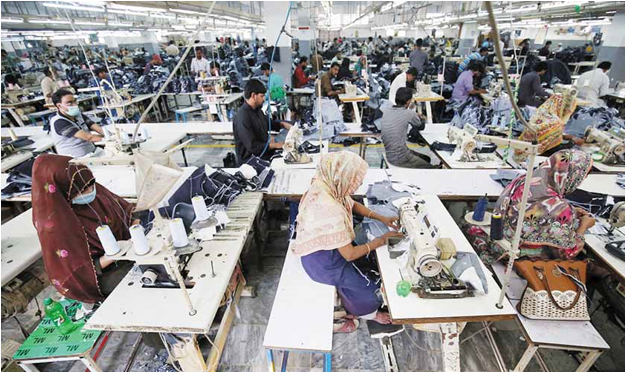INP-WealthPk
Ahmed Khan Malik
The small and medium enterprises (SMEs) sector in Sindh lacks the technology and innovation as well as entrepreneurial skills to flourish.

People related to the sector believe that there is lack of modernisation and innovation for value-addition and improved competitiveness. They stress that modern technology can help facilitate development of a niche market in the global value-chain in products and services that the province has a competitive advantage in. Mukhtar Hussain, secretary of the SMEs Association in Hyderabad, told WealthPK that Sindh can catalyse economic transformation by simply providing a conducive environment for SMEs. “The government needs to provide a level playing ground for the SMEs, especially in terms of facilitation in financing as well as technology training.”

He pointed out that another constraint in SMEs, especially for small enterprises, was the inadequate skills to compete and thrive in the global market. “One of the reasons for the lack of skills might be a mismatch between the demand and supply. Skills development services might be lacking in relevance, accessibility and affordability to bring about a transformational shift,” he said. “Similarly, on the demand side, many SMEs might not have a growth-oriented approach, which translates into low or no demand for acquiring entrepreneurial and business skills,” he said.
“An unskilled or semi-skilled labour force means that quite a few potential economic opportunities are lost,” Mukhtar said. “For example, if a country wants to relocate its industrial units to Pakistan, but a lack of relevant skills means that the country will not be able to leverage the potential benefits,” he said and added that the quality of relevant skills must be coupled with effective outreach to the rural SMEs that can considerably revitalise the rural economy through improved agricultural productivity. Shafqat Soomro, Director of Industries, said that the provincial government had initiated the formulation of a robust ‘Sindh SMEs Competitiveness Strategy’.
He added that Industries & Commerce Department, with technical assistance from the International Trade Centre through EU-funded Growth for Rural Advancement and Sustainable Progress (GRASP) project, initiated multi-stakeholder consultations to define the scope of the strategy, including vision, strategic objectives and priority areas. He said that the policy would develop a training plan to build their capacity to support SME development throughout Sindh and would also consider expanding the mandate of Sindh Enterprise Development Fund (SEDF) to include non-agricultural SMEs.
He said that policy would also enhance the scope of Sindh Small Industries Corporation (SSIC) to include financing of SMEs in its mandate. Soomro said that access to finance was considered a binding constraint for SMEs as many small enterprises lacked financing sources to expand operations and foster modernisation. “Traditionally, risk-averse commercial banks have been reluctant to provide financing for SMEs. Flexible financing products can help expand potential avenues for growth-oriented SMEs,” he said. “State Bank of Pakistan has also introduced notable initiatives for SME financing, like the SME Asaan Finance Scheme,” he said.
Credit: INP-WealthPk













